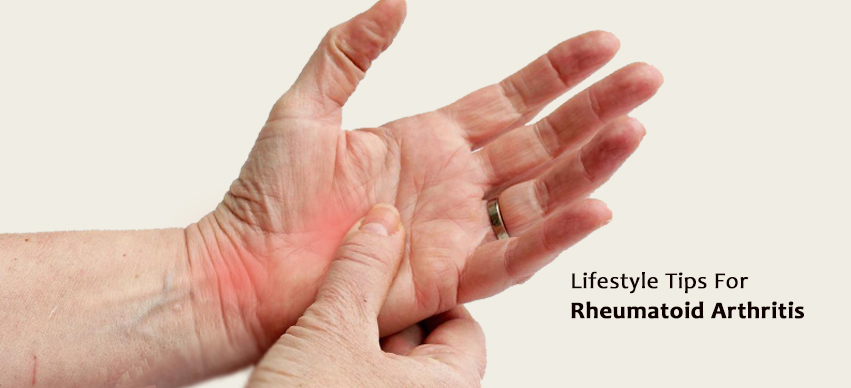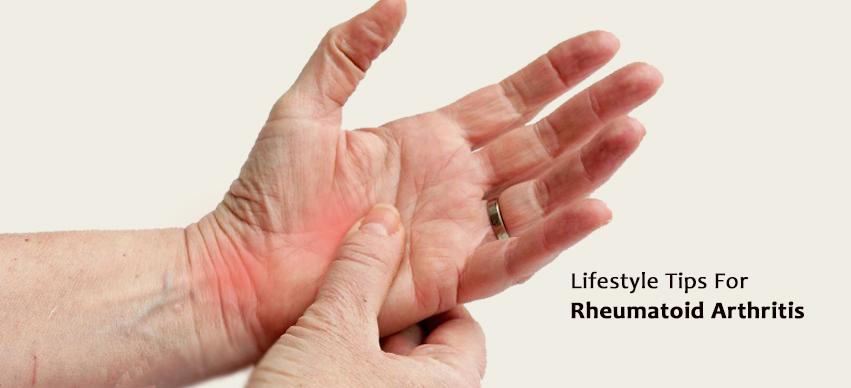Nanoparticle Therapy – An Emerging Cancer Treatment
5 Min Read


Rheumatoid arthritis is an incredibly debilitating disease and the treatment plan normally consists of taking many medications. Unfortunately, taking medications at such high levels can lead to other problems so it becomes a vicious cycle. Although it is necessary to do whatever you can to reduce the inflammation that is at the root of the illness, you can make lifestyle changes that can really help to stop this disease from progressing.
When you are in pain as a result of rheumatoid arthritis, it can be difficult to think about anything besides making it go away. As hard as this is, it is a good idea to educate yourself on the illness. Rheumatoid arthritis is an autoimmune disease where the immune system attacks the joints instead of foreign substances and it causes the thin layer of cells covering your joints to become sore and inflamed. It can lead to damage to the bones, cartilage, tendons, and ligaments.
The medications that are prescribed help to slow down the progression of the disease and they come with a wide range of side effects. The side effects can include loss of appetite, sore mouth, nausea, diarrhea, headaches, and hair loss, among others. It is important to learn everything you can about the drugs that you are taking so you understand why you feel the way you do.
Studies have shown that people who have rheumatoid arthritis are likely to have higher levels of “bad†bacteria in the gut, which may trigger the illness. In addition, they found that people with this illness have less of the healthy bacteria that the body needs to function effectively. Although it has not been determined that gut bacteria cause rheumatoid arthritis, it is beneficial to do whatever you can to increase the healthy bacteria and decrease the bad bacteria in your gut.
There are five conditions that exacerbate rheumatoid arthritis in people;
All of these conditions can become better with lifestyle changes that focus on a healthy diet that promotes the growth of healthy bacteria.
In fact, programs such as The Paddison Program are designed to educate clients and teach them how to change their lifestyles and learn to promote the growth of healthy bacteria in the gut. As a result, patients are able to minimize their need for pharmaceutical medications. In addition, when you lower your overall inflammation, you will have greater mobility as well as less pain and swelling.
Focusing on exercises that are specific to cardiovascular health and the joints will help to restore your quality of life. Low-impact exercises such as stretching, walking, yoga, and water exercises are particularly good for people with RA because they do not put a lot of strain on the joints. Building strength, flexibility, range of motion, and fitness will help to minimize the pain during a flare-up.
Supplements can be very helpful to people who suffer from rheumatoid arthritis. There are many supplements that help to improve the health of your gut and reduce inflammation. Supplements can complement medical treatments and, in some cases, they can reduce the need for drugs to alleviate symptoms.
When you educate yourself and learn which supplements can help you reduce your symptoms, they can help to improve your overall health. It is important to focus on only a few that will help you bring about healthy changes that you need for your body.
It is difficult to suffer from rheumatoid arthritis and the disease progresses as you age. When your joints are suffering from inflammation, it can be difficult to move. It is hard to eat the right foods and exercise when you live with this pain. However, by taking steps to engage in a healthier lifestyle, you can take charge of your illness and take steps to reduce its impact on your quality of life.
Start by educating yourself on the illness. Try to understand the science behind why your body is reacting the way it is. Then learn how to promote healthy bacteria growth in your gut. This can go a long way towards reducing your discomfort and allowing you to rely less on prescription medications. Learn about inflammation and use diet, supplements, and exercise to reduce it as much as possible. These are all steps that you can take to improve your quality of life.